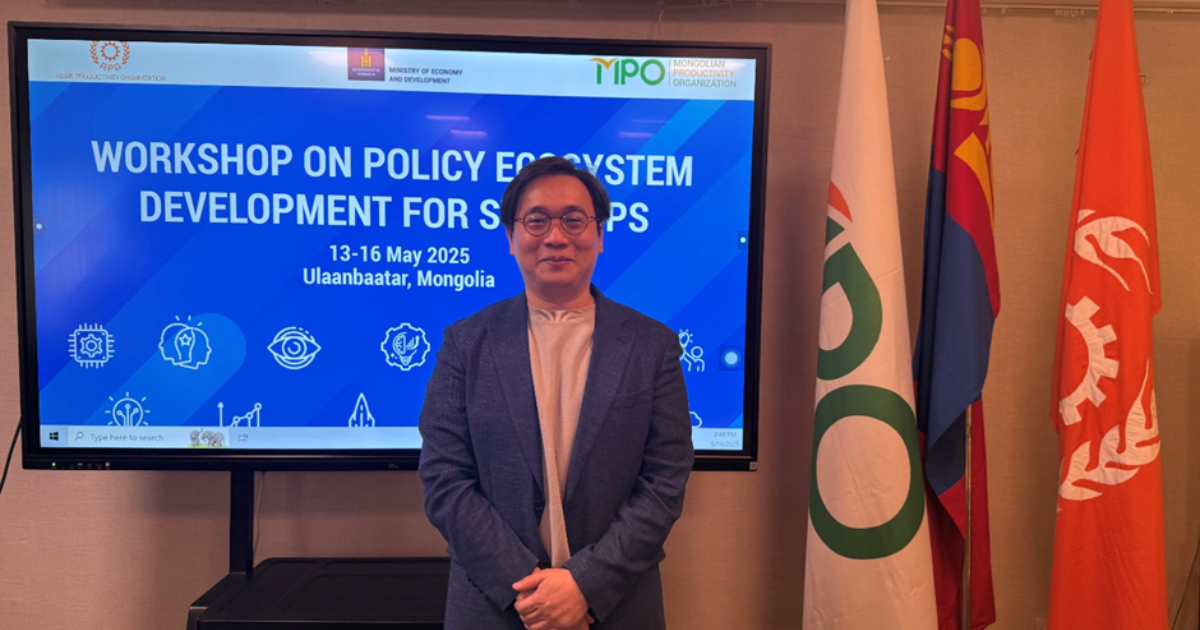At the “Policy Ecosystem Development for Startups” event in Mongolia, organized by the Mongolian Ministry of Economy and Development, the Asian Productivity Organization, and the Mongolian Productivity Organization, representatives from over ten countries gathered to discuss strategies for fostering startup ecosystems.
I had the opportunity to deliver a session titled “Singapore’s Model for Startup Ecosystem,” sharing how Singapore evolved from a colonial trading post into a global innovation hub through strategic policies, robust infrastructure, and international collaborations. This article summarizes the key points from my presentation, offering an objective overview of Singapore’s startup success story.
Singapore’s Journey to a Global Innovation Hub
In my remarks, I traced Singapore’s transformation from a 19th-century trading port to a leading startup hub. This shift was driven by deliberate government policies, a strategic location in Asia, and a commitment to innovation. With a startup ecosystem valued at approximately SGD 1.44 billion, Singapore leverages its multilingual workforce and robust financial sector to attract entrepreneurs and investors. “Singapore’s strength lies in its location, diverse talent pool, and strong financial infrastructure,” I noted during the session.
The city-state hosts over 4,500 tech startups, more than 400 venture capital (VC) firms, and 240 incubators and accelerators, creating a comprehensive ecosystem that supports startups at every stage. Nearly all major global VC funds have a presence in Singapore, either through Asian offices or dedicated subdivisions, particularly in sectors like fintech, healthcare, and deep tech.
Government Initiatives: The Foundation of Success
Singapore’s government plays a central role in its startup ecosystem through initiatives like Startup SG and the Smart Nation vision. Startup SG, launched in 2017, provides mentorship, grants, and networking opportunities to foster entrepreneurial growth. “The networking opportunities provided by Startup SG are critical for startup success,” I emphasized, highlighting how these connections have driven achievements in the VC space. Since 2015, the government has invested over SGD 1 billion in startup programs, supporting more than 2,000 startups annually across sectors like fintech, healthcare, and sustainability. The Startup SG Founder Grant offers up to SGD 50,000 and mentorship to first-time entrepreneurs, while Startup SG Equity co-invests up to SGD 8 million with private VCs in high-growth startups. Ninja Van, a logistics provider, scaled rapidly with SG Equity funding, serving as a prime example of these initiatives’ impact.
The Smart Nation initiative integrates technology into areas like the Internet of Things (IoT) and artificial intelligence (AI). Singapore’s small size enables rapid implementation of innovative solutions, making it an ideal testbed for smart urban technologies. As I noted, “Singapore’s compact scale allows for quick testing and iteration of new ideas,” positioning the city-state as a leader in smart urban living.
Historical Milestones and Growth Phases
My presentation provided a historical perspective on Singapore’s commitment to innovation. The National Computer Board (NCB), established in 1981, laid the groundwork for technological development, followed by companies like Creative Technology, a pioneer in MP3 players and speakers. By 2000, the Economic Development Board (EDB) launched a bioscience initiative, attracting SGD 2 billion in startup investments. The National Research Foundation, established in 2006, further strengthened research and development (R&D), supporting innovators like Hyflux, a leader in water refinery technology
From 2010 to 2015, startup funding grew from USD 80 million to USD 1 billion, driven by government support and global interest. Lazada, founded in 2012, capitalized on Singapore’s logistical advantages to become a leading e-commerce platform in Southeast Asia. By 2017, the ecosystem’s value reached USD 11 billion, with companies like Grab achieving unicorn status in Singapore and expanding into markets like Cambodia, Malaysia, and Thailand while diversifying into financial tools and cryptocurrency payments.
Attracting Global Talent and Partnerships
Singapore’s ability to attract global talent and foster international collaborations strengthens its ecosystem. Over 150,000 foreign professionals work in Singapore, with 29% in the tech sector, contributing diverse expertise. Programs like the TechPass (launched in 2021) and EntrePass offer visas to top talent and entrepreneurs, with approval rates for tech roles reaching 90%. “Talent is a cornerstone of Singapore’s economic growth,” I observed, highlighting the government’s strategic focus on human capital.
Collaborations with institutions like MIT, Tsinghua University, and the Israel Innovation Authority have driven advancements in AI, cybersecurity, and deep tech. The Singapore-Israel Innovation Summit in 2022 facilitated cross-border exchanges, while partnerships with the World Bank, DBS, and the United Nations on fintech projects, as well as collaborations with France on autonomous systems, underscore Singapore’s global integration.
Singapore’s pro-business regulatory framework is a key enabler of its startup ecosystem. Company registration can be completed in one to two days, and the city-state ranks highly for its strong legal framework and business-friendly policies. The Monetary Authority of Singapore (MAS) supports innovation through a fintech sandbox, allowing startups to test solutions with regulatory guidance. Compliance workshops and a trusted reputation ensure accountability while fostering innovation, making Singapore a preferred destination for crypto and fintech companies.
Success Stories and Future Outlook
My presentation highlighted success stories that illustrate Singapore’s impact. Carousell, a marketplace platform, grew from a modest valuation to unicorn status with support from Singaporean funds and government initiatives. ShopBack’s cashback model and Grab’s expansion into financial services demonstrate the scalability of Singapore-based startups. Over 40% of Singapore’s unicorn founders have international backgrounds, reflecting the city-state’s ability to attract and nurture global talent.
Looking ahead, fintech, healthcare, deep tech, AI, cryptocurrency, and green tech are poised for growth. Singapore’s consistent VC funding—over USD 12 billion in recent years—and its ranking as the fifth-best startup ecosystem globally position it for continued leadership. As I concluded, “Singapore’s ecosystem empowers entrepreneurs to turn bold ideas into reality,” encouraging global innovators to explore its opportunities.
Conclusion
My session at the Mongolia event outlined Singapore’s startup ecosystem, driven by strategic government initiatives, a robust financial sector, and global collaboration. From its historical roots to its status as a top-five global startup hub, Singapore offers a model for fostering innovation through talent attraction, regulatory support, and international partnerships. With success stories like Carousell, Grab, and Ninja Van, and a focus on emerging technologies, Singapore continues to serve as a launchpad for startups aiming to make a global impact.










